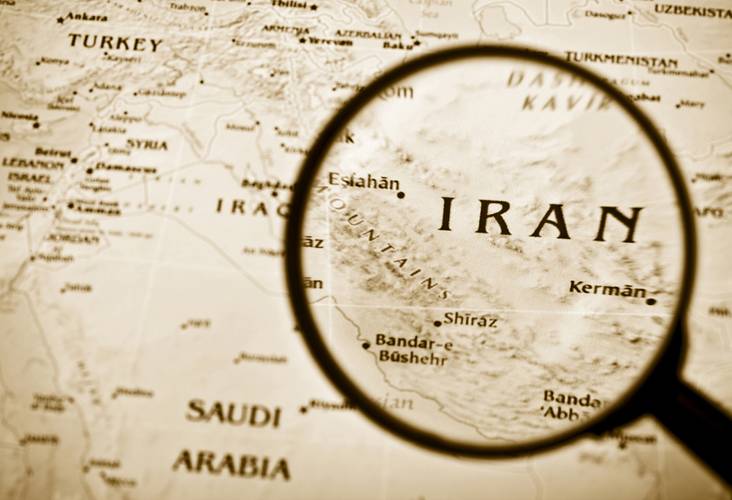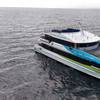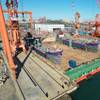Maritime Companies Need to Know: What is an “Iranian Person?"
And Why Knowing the Answer is Critical to Your Business
On December 23, 2012, the restrictive measures against Iran contained in Council Regulation (EU) No 1263/2012 came into force. The measures supplement those already contained in Regulation 267/2012 of March 23, 2012. While extending the restrictive measures in areas already legislated for, such as over the transfer of funds and financial services, it introduces new prohibitions which affect the shipping industry in a number of important ways. In particular, ship builders and repairers, classification societies and surveyors and charterer/operators will be affected by prohibitions against dealing with Iranian persons.
Ship Builders & Ship Repairers
The amended regulation now prohibits the direct or indirect sale, supply, transfer or export to any Iranian person, entity or body or for use in Iran of “key naval equipment or technology” for use in ship building, maintenance or refit or used in the construction of oil tankers. The equipment/technology is listed in detail in a new annex to the regulation by reference to the harmonized system code, but includes: marine propulsion engines; outboard motors; steam turbines and parts of steam turbines for marine propulsion; ship’s or boat’s propellers; and direction finding compasses and other navigational instruments for use in the maritime industry.
As with previous iterations of the EU sanctions against Iran, the direct or indirect provision of technical assistance, brokering services, financing or financial assistance in relation to those goods or related to the provision, manufacture or maintenance of those goods to an Iranian person, entity or body, or for use in Iran, is also prohibited.
There are limited exceptions in respect of providing such goods to someone who is not an Iranian person, entity or body where a vessel has been forced into an Iranian port or territorial waters by reason of force majeure. There are also exceptions in respect of the provision of these goods and services until February 15, 2013 in respect of contracts concluded before December 22, 2012.
However, the effect upon the shipbuilding/repair industry could be significant. Suppliers of such goods and services who are subject to the regulation will now have to conduct extensive due diligence on their customers to ensure that they are not being provided to an Iranian person, entity or body. The definition of an Iranian person, entity or body is sufficiently broad that this could be a real concern. It includes not just the state of Iran or a corporate entity registered in Iran, but also any legal person inside or outside Iran which is controlled directly or indirectly by another Iranian person. That could mean that an entity in a jurisdiction without any apparent connection to Iran, but which is controlled indirectly (perhaps through a series of offshore holding companies) by an individual or company in Iran is itself an Iranian person. The provision of any of the prohibited naval equipment/technology to that company by a person subject to the regulation would be a breach of the regulation.
EU based ship builders/repairers will need to insert detailed warranties/indemnities in their terms to ensure that any of the goods they provide are not sold or supplied on to Iranian persons by intermediaries.
Ship repairers in jurisdictions that have a close trading relationship with Iranian shipping interests will be affected by these expanded sanctions, even if they are not themselves subject to the regulation. The supply of the goods in question to high risk jurisdictions, such as the UAE, are only likely to be made by EU based suppliers if the sort of warranties/indemnities referred to above are included in the relevant contractual terms. That may have a practical effect upon the ability of the shipyards to supply these goods/services even if they are not themselves subject to the regulation. It will, at the very least, cause them to be more reliant on other markets for the provision of these goods. Furthermore, any EU national employees of shipyards that provide such goods/technology or technical assistance in relation to the same will be prohibited from doing so where dealing with Iranian persons (even if the yard itself is not).
Ship Classification and Inspection/Testing
There are further restrictions imposed in the amended regulation on: the provision of ship classification services; the supervision/participation in the design/construction and repair of ships; the inspection, testing and certification of marine equipment; and the carrying out of surveys, audits and visits for the issuance of certain marine certificates (e.g. SOLAS certificates). The prohibitions apply when the services are provided to a vessel flying the flag of Iran or owned, chartered or operated (directly or indirectly) by an Iranian person, entity or body. The prohibition is expressed to only apply to cargo vessels and oil tankers. Full details of the prohibited services are found at article 37a of the regulation. The prohibitions apply from January 15, 2013.
The providers of any of these services will need to ensure not only that they are not providing them to a vessel which is flagged in Iran, but also that the vessel in question is not chartered or indirectly controlled by an Iranian person. Given the wide definition of “Iranian person” per above, this is again a difficult prohibition to comply with. For example, classification societies subject to the regulation would have to ensure not only that they do not class a vessel flying the flag of Iran (relatively easy to comply with) but also that they do not class vessels chartered to or managed by any person satisfying the broad definition of an Iranian person, or that vessels that are already in class are not subsequently chartered to Iranian persons. That is much more difficult for classification societies to monitor and their compliance with the regulation requires vigilance to be exercised by the owners and sub charterers of the vessel. The classification societies will have the comfort of Article 42 (2) of the regulation which provides that there is no liability of any kind on a person that did not know and had no reasonable cause to suspect that their actions would infringe the prohibitions. However, they may well also seek to include warranties in their terms and conditions that the vessel will not be sub-chartered or operated by Iranian persons. In a worse case scenario, if they ever became aware that a vessel was chartered to Iranian persons they may be forced to withdraw class. To an extent, that mirrors the approach taken by the International Group P&I Clubs in withdrawing cover to vessels carrying Iranian origin petroleum products. Owners and operators (even if they are not subject to the regulation themselves) may then in turn seek to ensure that they include terms in their charters that prohibit the sub-charter of the vessel to Iranian persons to avoid the risk that class is withdrawn from the vessel.
Provision of Tankers for the Transport or Storage of Oil/Petrochemical Products
The amended regulation also includes for the first time a prohibition against the making available of vessels designed for the transport or storage of oil/petrochemical products to an Iranian person, entity or body. The phrase “making available” is sufficiently broad that it would probably encompass the sale or charter of a tanker to an Iranian person as well as the brokering of a fixture of a tanker and perhaps the financing of the purchase of a tanker by an Iranian person.
However, there is a further prohibition against making available a tanker to any person - not just an Iranian person - unless the provider has taken “appropriate action to prevent the vessel from being used to carry or store oil or petrochemical products that originate in Iran or have been exported from Iran.” Such a broad prohibition means that it is theoretically possible for an owner to breach the regulation - even if the vessel never loads Iranian origin petroleum products - simply by failing to take “appropriate action” to prevent the carriage/storage of Iranian origin petroleum products when chartering the vessel.
There is no guidance in the regulation, or indeed from HM Treasury, as to what steps would be appropriate to avoid such a breach. Presumably at the very minimum any tanker charterparty would require the permitted cargo clause to expressly exclude oil/petrochemical products of Iranian origin or that have been exported from Iran. Ideally, the charter party would include an express prohibition on the sub-charter of the vessel on anything other than back to back terms in respect of the permitted cargos. Owners (and disponent owners in a chain of charters) would then have to exercise due diligence as far as possible to ascertain the origin of the cargo being loaded on the vessel and to refuse to comply with illegitimate orders from the charterers/sub-charterers.
Clarification on the Stemming of Bunkers of Iranian Origin
There is some good news, however, for the shipping community. The prohibition introduced in March 2012 against the transport (or the insurance of the transport) of petroleum products of Iranian origin arguably prevented the stemming of bunkers of Iranian origin by vessels entered with an International Group P&I Club.
There were concerns that P&I cover may be invalidated if a vessel stemmed bunkers of Iranian origin. Given the reasonably high probability of bunkers stemmed in Singapore or Fujairah containing fuel oil of Iranian origin, that was a significant concern for the community.
The International Group managed to obtain some non-binding clarification from HM Treasury that it was probably not the intention of the regulation to prevent the stemming of bunkers containing Iranian origin petroleum products, but without any amendment to the regulation, that guidance remained non-binding. Fortunately, the amendments to the regulation deal with this issue. The regulation has been amended to provide expressly that the prohibition against the transport of Iranian petroleum products does not apply to bunkers intended for the propulsion of a vessel’s engines where those bunkers are produced and supplied in a third country other than Iran. There are also exceptions allowing the purchase of bunkers in Iran or Iranian territorial waters where a vessel has been forced into port under force majeure.
The recent amendments significantly ramp up the pressure on Iran by targeting the shipping industry in much the same way as the oil and gas industry and the insurance industry have previously been targeted.
Ship repairers, classification societies and owners/operators of vessels will all need to consider their current trading contracts to ensure that they do not inadvertently either breach the regulation themselves or cause events to take place that result in the withdrawal of class.
Patrick Murphy is a Senior Associate, Clyde & Co., based in the Dubai office, specializing in International Trade Disputes and Sanctions. He regularly advises on the application of sanctions to domestic and international traders and businesses in the Middle East, and works regularly with Clyde & Co.’s US offices on the implication of US sanctions against Iran for clients in the region.
Email: [email protected]
(As published in the March2013 edition of Maritime Reporter & Engineering News - www.marinelink.com)
















